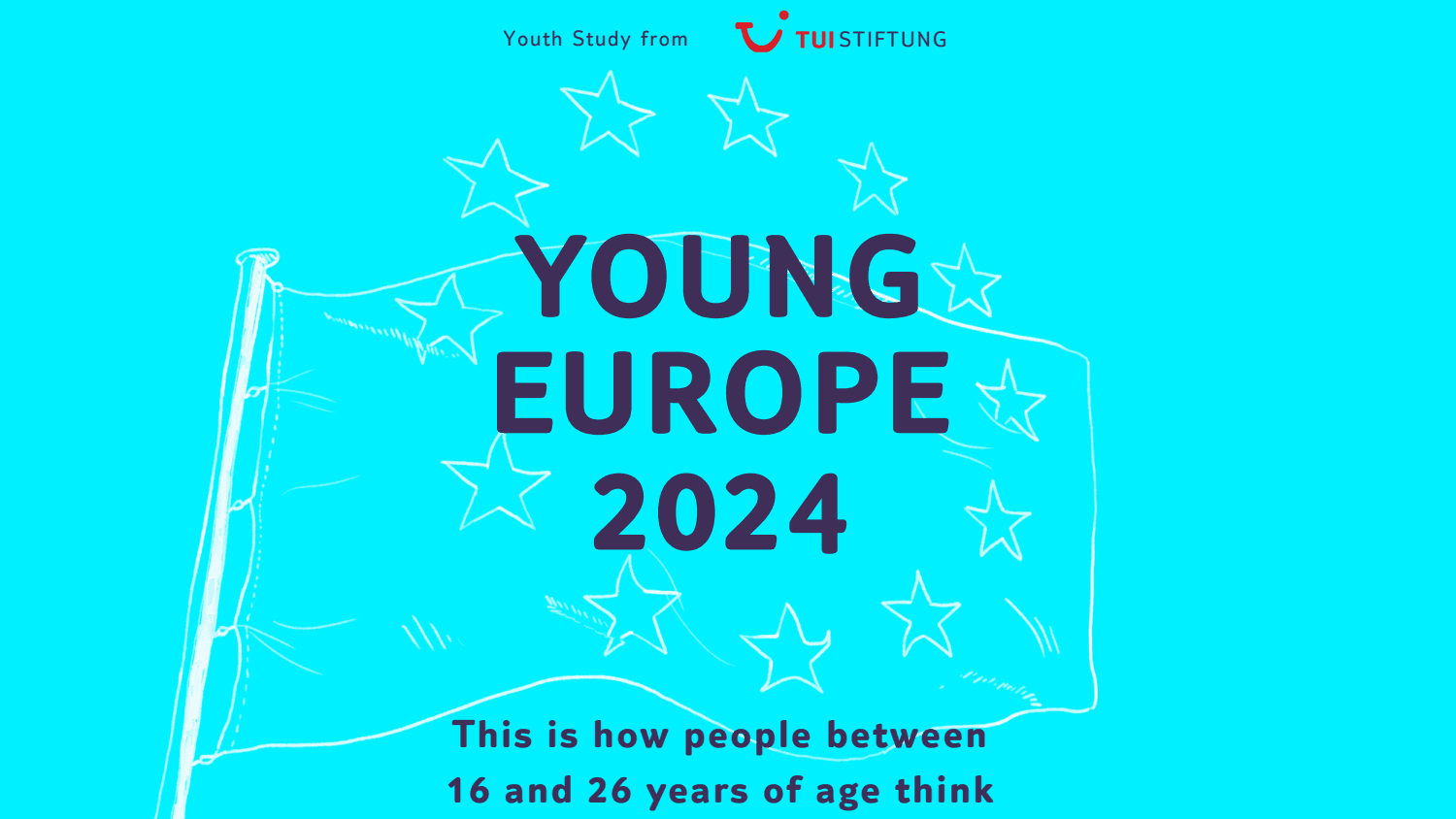AI-Generated Summary
Learn moreContext of the Study
The "Young Europe 2024" study was conducted by the TUI Stiftung in collaboration with YouGov Deutschland GmbH. This research aims to capture the perspectives of young Europeans aged 16 to 26 on various socio-political issues, particularly in light of the upcoming EU elections. The survey collected responses from 5,874 participants across Germany, France, Spain, Italy, Greece, and Poland, from March 6 to March 19, 2024. TUI Stiftung is a charitable foundation based in Hannover, dedicated to fostering European unity through educational and developmental initiatives.
Key Findings on Future Outlook and Democracy
The study reveals a generally pessimistic outlook among young Europeans regarding their future. Approximately 34% of respondents express a negative view of their prospects, significantly influenced by ongoing global and national crises. Notably, migration has emerged as the most pressing issue at the European level, surpassing concerns about climate change. Participants also reported high levels of societal tension, particularly between political left and right factions. A concerning trend is observed in the dissatisfaction with democracy; nearly half of young people noted instances of anti-democratic behavior, and around 40% consider democracy to be at risk in their respective countries.
🇺 European Union Perception
Despite their dissatisfaction with national politics, young Europeans demonstrate a relatively high level of trust in EU institutions. They appreciate the EU's achievements, such as the freedom of movement and the promotion of core European values like democracy and human rights. However, there is a prevailing sentiment that the EU lacks the global influence of major powers, such as the USA and China. While there is general support for stronger integration among member states, enthusiasm for deeper integration has experienced a slight decline since 2019.
Political Engagement and Identity
Political orientations among young Europeans are diverse, and they do not fit neatly into traditional left-right or progressive-conservative categories. Many young people express a desire for greater democratic engagement but feel underrepresented relative to older generations. Trust in national political institutions is notably low, with only about one-third of respondents expressing confidence in EU institutions. Despite this trust deficit, voting is viewed as a civic duty and an effective means of instigating change.
Societal Tensions and Political Participation
The survey highlights significant societal tensions that young Europeans perceive, particularly among different political ideologies and social groups. Young people are increasingly confident in their ability to engage politically and uphold democratic values. However, they also feel disadvantaged compared to older generations and are susceptible to populist rhetoric due to feelings of underrepresentation.
Annual Study Overview
The "Young Europe" study has been conducted annually since 2017 by TUI Stiftung, aiming to gauge the attitudes of young Europeans towards their living environment and political systems. The 2024 edition notably excludes UK participants, focusing solely on EU member states. The study employs online surveys with representative sampling based on age, gender, and education from the participating countries.
This comprehensive study provides valuable insights into the perspectives of Europe's younger generation on critical issues affecting their lives and future within the European Union, highlighting the need for sustainable and inclusive approaches to political engagement and social cohesion.
